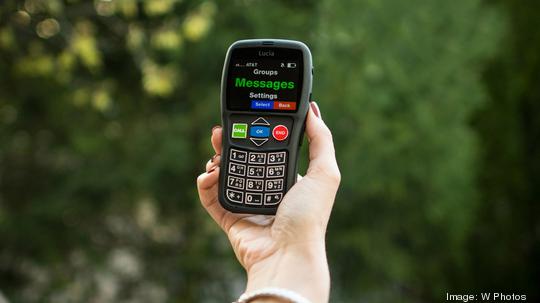
About 9 percent of U.S. adults have difficulty seeing, even with glasses or contact lenses, according to the National Center for Health Statistics, and the National Institutes of Health reports 15 percent of American adults have some trouble hearing.
As smartphone technology advances – with larger screens and more complex applications – a Vienna, Va.-based company is going back to basics to serve those populations.
RAZ Mobility, a provider of mobile assistive technology, launched a new phone designed to address the needs of people who are blind, low vision or hard of hearing.
The mobile phone has large tactile buttons in different colors and shapes, a voice guide, ergonomic design and an SOS button. It features a large, high-contrast display with enlarged text and easily adjustable audio settings, and its voice guide is available in 10 languages.
"It’s not a device that was a already out there in the market and just tuned by adding some features," COO Nermin Selimic told Inno. "It was developed from scratch for accessibility and addressing specific needs of users who are blind, are hard of hearing, have cognitive issues or are seniors."
The phone works on U.S. carriers including AT&T and T-Mobile, as well as GSM networks such as Cricket Wireless, Red Pocket Mobile and Straight Talk. RAZ partnered with the Swiss Lucia phone manufacturer to launch the product in the U.S., Canada and Mexico.
Though the company offers some products and services directly to consumers, its main focus is selling to state government agencies, the Department of Veterans Affairs, wireless providers and nonprofit organizations. For example, it supplies a Maryland state program where eligible users with disabilities can obtain accessible devices like tablets and smartphones. Lucia's target market might tilt farther toward the end user.
"Most of our other solutions are more complex and, to some extent, aren’t sent direct to users – so through government programs," Selimic said. "In the case of Lucia, that is different, because it is a basic mobile phone and intuitive device, so we expect it'll be shared equally between government customers and consumers directly."
Selimic said that even before launch, demand for the phone – in the works for three years – has been enormous.
"The need is tremendous ... In the last two years, as we got closer to finish line, there's been significant demand. We know many, many consumers have been in touch with us and kept up regularly with what we're doing."




